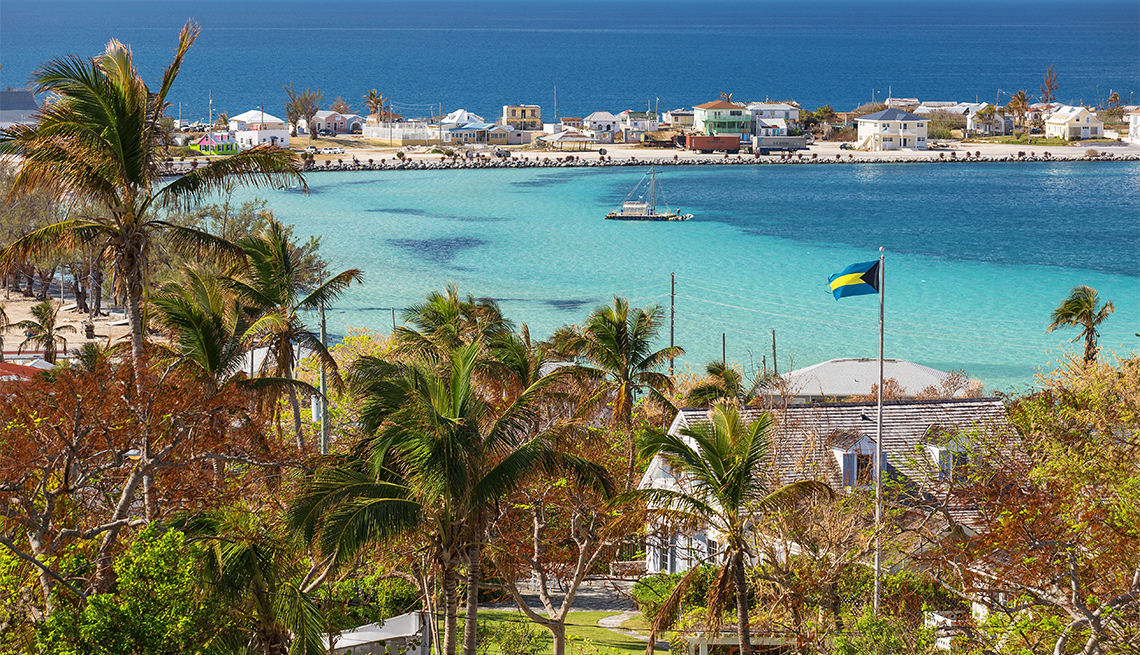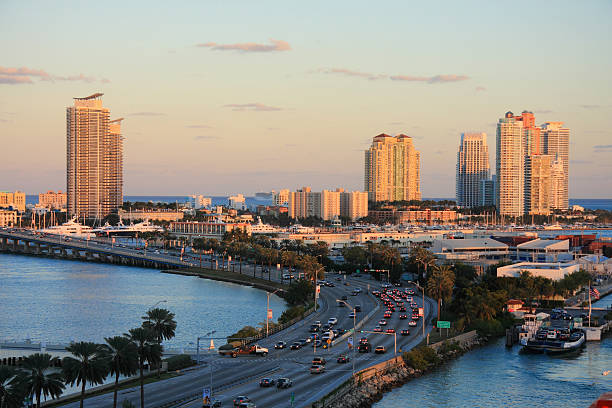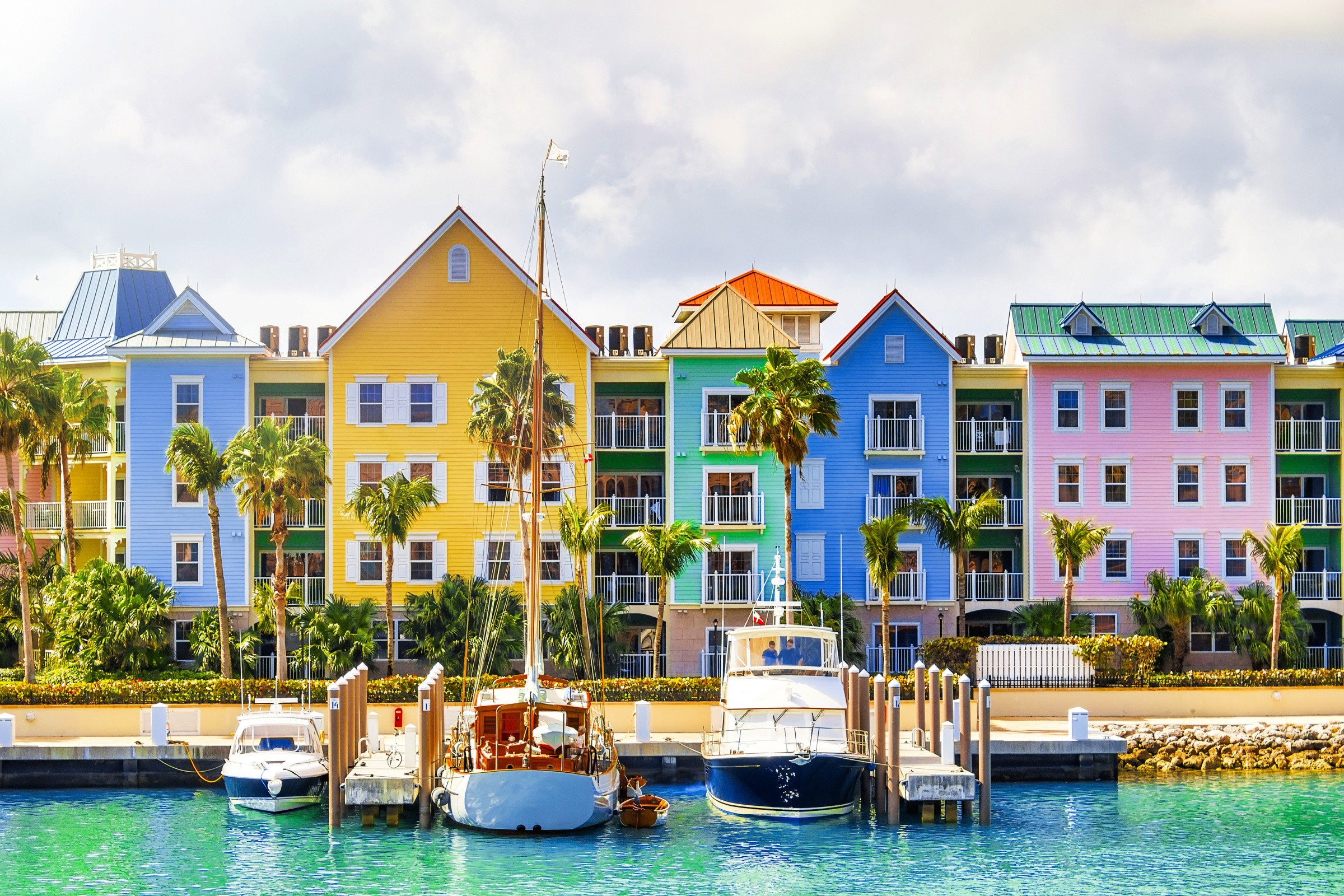Incorporating a Company and Starting a Business in the Bahamas: A Comprehensive Guide
A suitable business location, the Bahamas, an archipelago of over 700 islands and 2,400 cays, is a tropical paradise located just 50 miles from Florida. Renowned for its turquoise waters, pristine beaches, and vibrant culture, the Bahamas is a favored destination for tourists and expatriates alike. With only around 30 inhabited islands, Nassau, located on New Providence Island, serves as the capital, while Freeport on Grand Bahama Island is the second-largest city. Beyond its natural beauty, the Bahamas is an appealing location for businesses due to its tax-friendly environment and strategic positioning.
Quality of Life in the Bahamas: A Blend of Luxury and Simplicity
The Bahamas offers one of the highest standards of living in the Caribbean, supported by a stable government, a flourishing tourism industry, and a robust financial services sector.
- Housing and Accommodation
Housing options in the Bahamas range from luxury properties on New Providence and Paradise Island to more affordable alternatives on smaller islands. Rental costs, however, can be steep, with single-bedroom apartments in Nassau averaging $1,000 to $2,500 per month. Expatriates often favor gated communities and waterfront properties, which provide security and breathtaking views. - Healthcare and Education
Residents have access to both public and private healthcare facilities, though many expatriates prefer private clinics for premium services. Educational opportunities are abundant, with public schools, private institutions, and international schools catering to expatriate families. The University of the Bahamas provides higher education locally, but many students pursue studies abroad in the U.S. or Europe. - Living Expenses
While the cost of living in the Bahamas is relatively high due to import taxes and transportation costs, it is offset by the absence of income taxes. Utilities can be expensive, but the adoption of solar power is reducing energy costs and promoting sustainability.
Tax Policies in the Bahamas: A Global Tax Haven
The Bahamas is renowned for its tax-neutral policies, attracting expatriates, high-net-worth individuals, and corporations seeking financial efficiency.
- No Personal Income Tax
The absence of personal income tax allows residents to maximize their earnings. Both locally earned and internationally sourced incomes are free from taxation, a key draw for individuals seeking financial freedom. - No Capital Gains Tax
Residents do not pay capital gains tax, making the Bahamas an ideal location for investors in real estate, stocks, and other assets. This allows wealth to grow without tax liabilities on profits. - No Inheritance Tax
Wealth transfer in the Bahamas is unburdened by inheritance or estate taxes, making it an attractive jurisdiction for safeguarding generational wealth. - Value-Added Tax (VAT)
A 12% VAT applies to most goods and services, contributing to government revenues. Customs duties, ranging from 0% to 220%, are levied on imported goods, further offsetting the lack of direct taxes. - Property Tax
Property tax is relatively low, with owner-occupied properties benefiting from a $250,000 exemption. Properties valued over $500,000 are taxed at a rate of up to 1%.
Corporate Tax Landscape in the Bahamas
The Bahamas is an attractive destination for businesses due to its corporate-friendly tax policies.
- Zero Corporate Income Tax
The absence of corporate income tax allows businesses to maximize profits and reinvest in operations. This policy is particularly appealing to international firms and startups. - No Capital Gains or Withholding Taxes
Companies enjoy the flexibility of transferring and selling assets without capital gains tax. Additionally, there are no withholding taxes on dividends, royalties, or interest, ensuring optimal shareholder returns. - Indirect Taxes
While income is untaxed, businesses are subject to VAT and import duties. VAT, at 12%, is levied on most goods and services, while import duties vary depending on the product type. - Sector-Specific Incentives
The Bahamian government offers incentives to industries such as tourism, agriculture, and manufacturing. These include duty exemptions, fee waivers, and long-term leases, encouraging investment in these sectors.
Thriving Industries in the Bahamas
The Bahamian economy is diverse, with tourism and financial services as its primary drivers.
- Tourism
Contributing to nearly 60% of GDP, tourism is the backbone of the Bahamian economy. The country’s pristine beaches, luxury resorts, and vibrant cultural events attract millions of visitors annually. Opportunities abound for businesses offering eco-tours, water sports, and luxury accommodations. - Financial Services
As a leading offshore financial hub, the Bahamas offers banking, insurance, wealth management, and investment advisory services. Its favorable tax regime and strict financial privacy laws make it a global magnet for financial firms. - Real Estate
The real estate market thrives on demand from high-net-worth individuals seeking luxury residences and vacation properties. Expats can tap into this sector through property development, rental services, or brokerage firms. - Agriculture and Fisheries
The Bahamas produces tropical fruits and exports lobster and conch, offering the potential for agribusiness and sustainable fishing initiatives. - Manufacturing
Emerging industries such as food and beverage production, building materials, and rum manufacturing contribute to the economy, creating niches for entrepreneurial ventures.
Inflation and Cost of Living in the Bahamas
The Bahamas’ reliance on imports significantly influences its cost of living and inflation.
- Inflation Trends
Inflation has remained moderate but is subject to fluctuations driven by global economic conditions and supply chain disruptions. The COVID-19 pandemic further exacerbated costs, especially for essentials like fuel and food. - Living Costs
Housing is a major expense, particularly in Nassau and Freeport. Groceries, utilities, and transportation are also costly due to the island’s reliance on imported goods and energy. However, residents enjoy a high quality of life amidst stunning natural beauty. - Balancing Costs with Benefits
Despite the high living costs, many residents find the tax savings, scenic environment, and welcoming community worthwhile, making the Bahamas a highly desirable place to live and work.
Exploring Business Structures in the Bahamas: Choosing the Right Entity
The Bahamas offers a variety of business structures, each tailored to meet the unique needs of entrepreneurs. Here’s a closer look at the main options available:
- Sole Proprietorship
A sole proprietorship is the simplest form of business ownership, where a single individual is responsible for all aspects of the enterprise, including liabilities and profits. It’s ideal for small-scale ventures. - Partnerships
Partnerships in the Bahamas can be structured as general or limited. In a general partnership, partners share equal responsibilities and liabilities. Limited partnerships, on the other hand, provide liability protection to some partners based on their investment, while general partners oversee daily operations. - Company Limited by Shares
This structure is designed for larger businesses. A company limited by shares is a separate legal entity, offering liability protection to its shareholders. It raises capital through the sale of shares, and shareholders’ liabilities are limited to the amount they have invested. - International Business Company (IBC)
Ideal for international investors, IBCs are designed for conducting business activities outside the Bahamas. These companies benefit from exemptions on income taxes generated abroad but are restricted from engaging in local commerce, making them perfect for foreign trade, investment, and wealth management. - Limited Liability Company (LLC)
An LLC combines the benefits of corporations and partnerships, offering limited liability for owners while providing tax flexibility. Profits are passed directly to members without being subject to corporate taxation. - Non-Profit Organizations
Non-profits established for charitable, educational, or religious purposes enjoy tax exemptions on revenue aligned with their mission. This structure is ideal for philanthropic ventures, enabling fundraising and tax benefits.
Pathways to Residency and Citizenship in the Bahamas
For expatriates seeking to establish long-term roots in the Bahamas, there are several pathways to residency and citizenship:
- Permanent Residency through Investment
Expats can secure permanent residency by investing in Bahamian real estate, with a minimum threshold of $750,000. Investments exceeding $1.5 million are often prioritized, expediting the application process. - Work Permits and Temporary Residency
Employment contracts or business ventures can qualify expats for work permits, which allow them to live and work in the Bahamas. These permits are renewable and can serve as a stepping stone to permanent residency. - Citizenship
Expats may apply for Bahamian citizenship after residing in the Bahamas for at least 10 years. Applicants must demonstrate active community involvement, a clean criminal record, and financial stability to be considered.
Why the Bahamas is an Ideal Destination for Business
Registering a business in the Bahamas is highly attractive for entrepreneurs, thanks to its unique advantages:
- A Tax-Free Economy
The Bahamas imposes no corporate income tax, personal income tax, or capital gains tax, allowing businesses and individuals to maximize their earnings. - Confidentiality in Business Operations
Bahamian laws prioritize the privacy of business owners, ensuring confidentiality for company shareholders and directors. - Asset Protection
Strong legal frameworks in the Bahamas protect assets from potential financial risks or lawsuits, making it a favored destination for high-net-worth individuals. - Effortless Company Formation
The business registration process in the Bahamas is straightforward, with government incentives available for industries such as tourism, manufacturing, and financial services. - Political and Economic Stability
The Bahamas enjoys a stable government and robust infrastructure, making it a secure and reliable environment for investors. Its proximity to the United States enhances its strategic business appeal.
Steps to Register a Business in the Bahamas
Starting a company in the Bahamas involves a simple, efficient process:
- Selecting a Business Name
Choose a unique company name and submit it to the Registrar General’s Department for approval. The name must adhere to regulations, avoiding restricted terms like “Bank” or “Insurance” unless properly licensed. - Preparing Incorporation Documents
Draft key documents, such as the Memorandum and Articles of Association, which outline the company’s structure and operational guidelines. Details of directors and shareholders must also be included. - Appointing Directors and Shareholders
Every company must appoint at least one director and shareholder. Many ex-pats use nominee directors to maintain confidentiality. - Registering a Local Office
Businesses are required to maintain a registered office within the Bahamas, which serves as the official address for all legal notices and documentation. - Paying Registration Fees
Registration fees vary based on the type and size of the company but are generally affordable. These fees must be paid to finalize the incorporation process. - Securing a Business License
Once incorporated, businesses must obtain a license from the Department of Inland Revenue, renewable annually to ensure legal operations.
The entire process typically takes a few business days, especially when working with a local agent to streamline the setup.
The Bahamas and Its International Relations
The Bahamas has fostered strong relationships with countries worldwide, enhancing its economic and diplomatic standing:
- United States
The U.S. is the Bahamas’ primary trading partner, supplying the majority of imported goods. Tourism is a cornerstone of their relationship, with most visitors arriving from the U.S. Strong security and diplomatic ties further bolster this partnership. - United Kingdom
As a member of the Commonwealth, the Bahamas enjoys cultural and political connections with the UK, fostering cooperation in education, trade, and tourism. - CARICOM Membership
As a member of the Caribbean Community (CARICOM), the Bahamas benefits from regional economic integration and collaboration, strengthening ties with neighboring Caribbean nations.
Other Taxes in the Bahamas
While the Bahamas is known for its tax-free status on income, several indirect taxes generate government revenue:
- Value Added Tax (VAT)
VAT is set at 12% and applies to most goods and services. Businesses exceeding a certain revenue threshold must register for VAT and remit payments to the government. - Property Tax
Owner-occupied properties enjoy an exemption for the first $250,000 in value, with rates increasing for higher-valued properties. Non-occupied properties and luxury real estate may be subject to higher rates. - Import Duties
Import duties, ranging from 0% to 220%, are levied on various goods entering the country. These duties are significant given the Bahamas’ reliance on imports. - Stamp Duty
Stamp duty is charged on property transfers and legal documents, calculated as a percentage of the transaction value. - Business License Fees
All businesses are required to pay annual license fees based on revenue and industry classification.
Climate and Natural Environment
The Bahamas enjoys a tropical climate with warm temperatures throughout the year, making it a haven for those who love sunshine and outdoor activities. However, as part of the Atlantic hurricane belt, the Bahamas experiences hurricane season from June to November. The islands have robust infrastructure and community preparedness programs to mitigate risks associated with extreme weather events.
Ensuring Safety and Security in the Bahamas
The Bahamas is known for its commitment to maintaining safety and security, particularly in popular tourist hubs such as Nassau and Paradise Island. Law enforcement agencies are active and visible, ensuring a secure environment for both residents and visitors. While petty crimes, like pickpocketing or theft, may occur in crowded or heavily trafficked areas, the Bahamian government continually enforces measures to reduce such incidents and uphold public safety.
For tourists and expatriates, a few basic precautions can enhance their overall experience. These include avoiding remote or poorly lit areas at night, safeguarding personal belongings, and staying vigilant in unfamiliar surroundings. Travelers will find that adherence to these general safety practices ensures a more relaxed and enjoyable stay. Overall, the Bahamas stands out as one of the safer destinations in the Caribbean, where residents and visitors alike can enjoy a peaceful and secure environment.
The Global Reach of the Bahamian Passport
The Bahamian passport is a powerful asset, offering its holders extensive global mobility. Citizens of the Bahamas enjoy visa-free or visa-on-arrival access to over 150 countries, including prominent destinations such as the United Kingdom, Canada, and the countries within the European Union’s Schengen Area. This unparalleled travel freedom reduces bureaucratic hurdles and enhances the appeal of Bahamian citizenship.
As a member of the British Commonwealth, the Bahamas provides its passport holders with additional privileges in Commonwealth nations, such as easier access to visas and residency pathways in member states. This dual benefit of global mobility and Commonwealth advantages makes the Bahamian passport particularly desirable.
For those seeking to broaden their international opportunities, the Bahamas passport serves as a gateway to seamless travel and enhanced connectivity across the globe. Its value extends beyond travel, symbolizing the country’s strong diplomatic ties and respected standing in the international community.
In conclusion, the Bahamas stands out as a secure and appealing Caribbean destination, offering both safety and remarkable international mobility through its powerful passport. The nation’s strong law enforcement presence and proactive safety measures ensure a secure environment for residents and tourists alike, allowing visitors to explore its beautiful landscapes and vibrant culture with peace of mind.
The Bahamian passport enhances this appeal, granting citizens visa-free or easy access to over 150 countries and valuable privileges within the British Commonwealth. This global reach not only facilitates travel but also symbolizes the Bahamas’ strong international relationships and respected position on the world stage. For individuals considering citizenship, residency, or simply a visit, the Bahamas offers a blend of security, global connectivity, and cultural richness that is difficult to match, making it an ideal choice for those seeking both adventure and opportunity.





